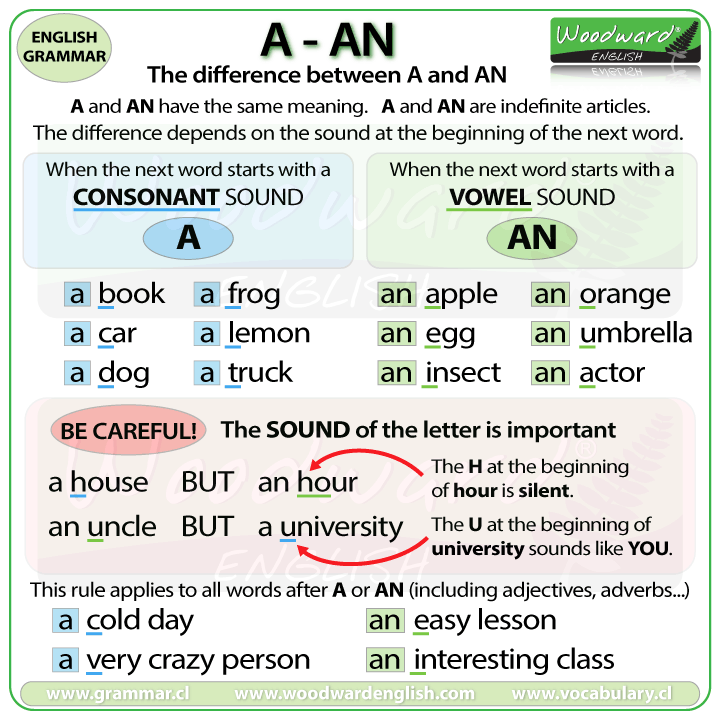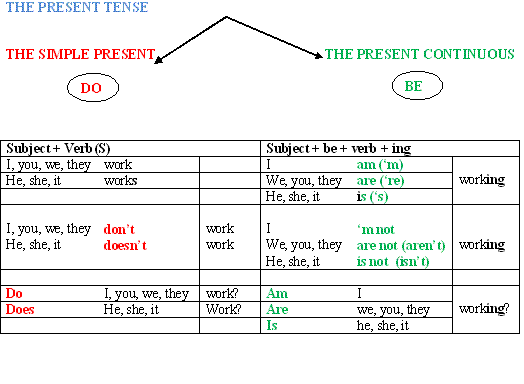A/an, the, no article
The Indefinite Article – A / AN
We use A/AN with:1. Singular nouns and the first time we refer to a person, animal or thing.
- a child
- an elephant
- a television
- My shirt is dirty.
- This car is expensive.
- One person is in the reception.
- There is only one exit from the airport.
- a book
- a table
- a clock
- a university (because the beginning of university sounds like YOU-niversity)
- an apple
- an elephant
- an umbrella
- an hour (because the H is silent)

The Definite Article – THE
We use THE with:1. A singular or plural noun when it is clear/obvious which person or thing we are talking about.
- There is a lamp in my bedroom. (we mention the lamp for the first time)
- The lamp is next to the desk.
- We watched the new Brad Pitt movie last night.
- She plays the piano.
- the sun
- the moon
- the internet.
- The Mississippi River
- The Black Sea
- The Andes
- The Sahara Desert
- the west
- the south-east
- the north-west.
No Article
We use no article with:1. When we refer to general ideas, plurals or uncountable nouns we do not use THE.
- Religion is an important issue. (NOT The religion is an important issue)
- Mexican food is spicy. (NOT The Mexican food is spicy).
- I have read Romeo and Juliet.
- Cape Town
- Montana
- Vietnam
4. Lakes, single islands, continents or mountains.
- Lake Victoria
- Jamaica
- Asia
- Mt Fuji
- Mars
- Jupiter
- Saturn
- soccer
- tennis
- skiing
- monopoly
- breakfast
- lunch
- dinner
- supper







